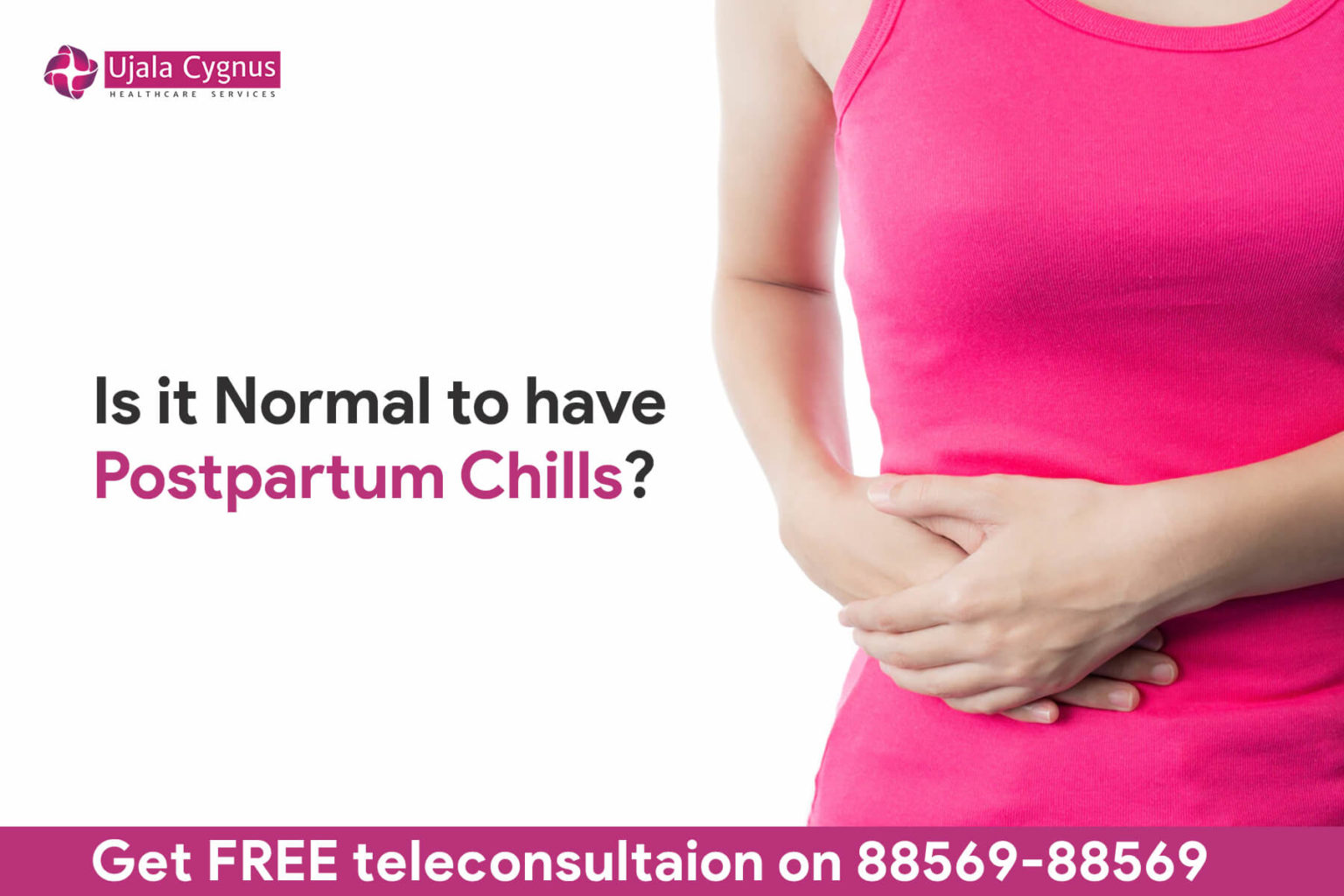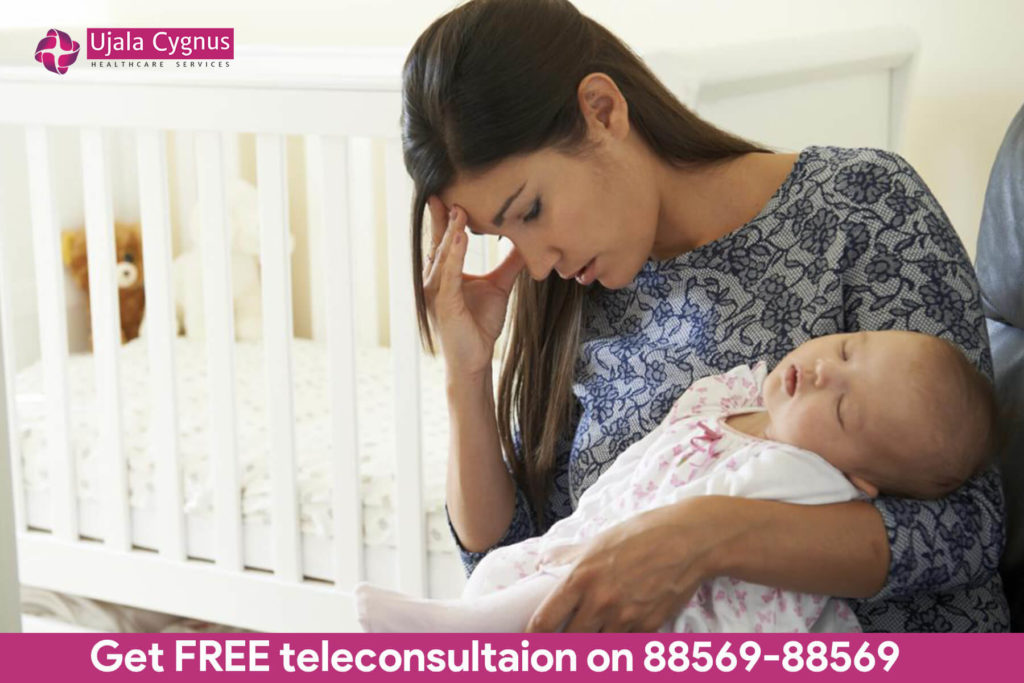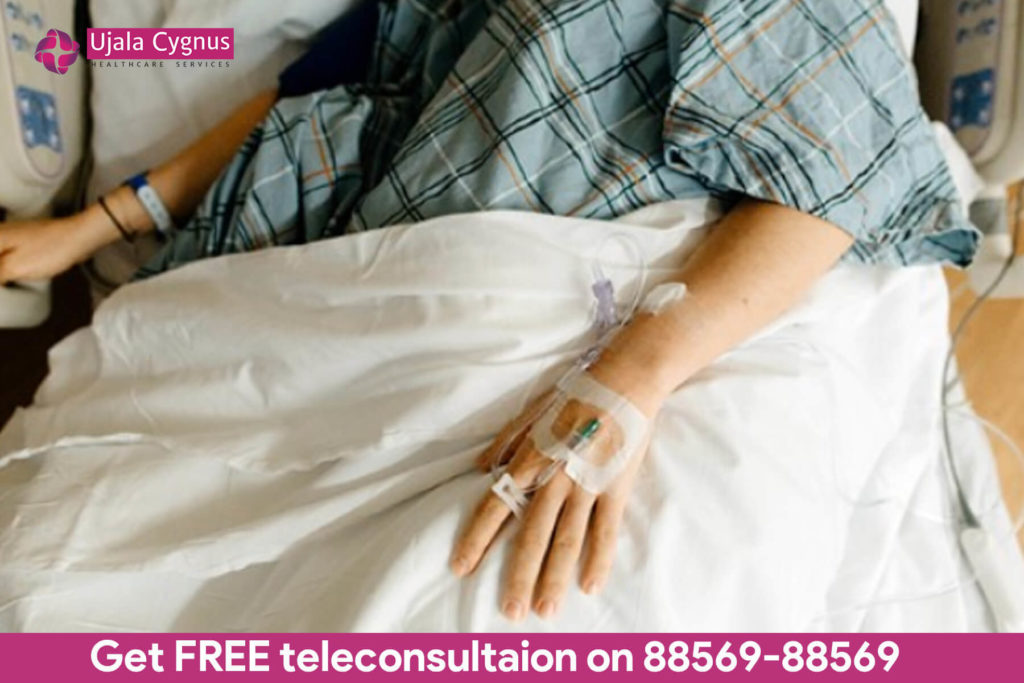Is it Normal to have Postpartum Chills?

A woman indeed has to go through a lot during her pregnancy. There are consistent changes in hormone levels during pregnancy. Once the baby is born, there are postpartum chills in many instances. The immediate solution is to wrap yourself in a blanket, you can relax, and the shivers will end immediately. These symptoms are usual and can happen due to
- Blood loss
- Fluid loss
- Hormonal changes
Many women who are delivering their first baby are still unaware of Postpartum chills and the mood swings they have after a week of childbirth. Along with this, there are even cases of excessive bleeding and anaemic conditions. Get to know more about anaemic conditions by reading our blog about How To Overcome Anaemia In Pregnancy
Postpartum symptoms
The postpartum symptoms that a woman experiences post-delivery includes
- Vaginal Bleeding
- Abdominal cramps
- Sore perineum
- Trouble urinating
- Constipation
- Haemorrhoids
- Fatigue
- Body ache
When should you call your Doctor after experiencing Postpartum Chills?
It is common for mothers to experience postpartum chills shortly after giving birth. The case studies by doctors in 100 women found that around 31% of women experienced postpartum chills. Usually, postpartum chills calm down within a few hours after giving birth. It is good that the body goes through a shivering stage to get ready for this experience and add it to your postpartum retrieval plan and caring for yourself after the baby is born.
However, monitoring the new mother’s temperature during the postpartum period is vital because trembling with a fever can indicate an infection.
- Chills followed by fever
- Cough
- Chest pains
- Feeling unwell.
It prompts a call to your doctor and needs a doctor’s intervention.

What is Postpartum depression?
In many cases, after a few days of giving birth, most women get the “baby blues” or feel sad or empty. The baby blues phase may end in 3 to 5 days for many women, but when these baby blues don’t go skipping or signs of feeling sad, hopelessness, or emptiness when it exceeds more than two weeks, it is termed postpartum depression.
Postpartum depression symptoms
Most women who get postpartum depression have been diagnosed with bipolar disorder and schizophrenia, and other mental diseases. But many do not have psychiatric concerns.
Postpartum depression can come even a couple of weeks after you give birth. Generally, it happens with different symptoms and might include:
- hallucination
- delusion
- anxiety
- insomnia
- mood swings
- Feeling detached
It can be tricky to tell if your symptoms are a normal part of recovering from childbirth or something more serious. This is why it’s essential to have a friend keep an eye on you in the early days and weeks.

Knowing about Postpartum haemorrhage
There are even cases wherein postpartum bleeding or more harsh life-threatening situation like postpartum haemorrhage is reported. Please read below about it.
In many instances of post-childbirth, the blood clots are more significant than a plum, and bleeding is so heavy that the sanitary pad an hour and doesn’t slow down or stop. It needs proper care and, if required, a doctor’s advice.
This is also known as postpartum bleeding. When this same bleeding becomes too severe after giving birth, it is a painful condition termed postpartum haemorrhage (PPH). The haemorrhage condition usually arises within 24 hours of childbirth and can occur up to 12 weeks postpartum. The blood loss observed is more than 32 ounces in the case of postpartum haemorrhage, whether it’s a vaginal delivery or a Cesarian section or a C-section.
How to Care For Postpartum Chills
- Caring for yourself: You can cover yourself up and keep warm until the shivering declines. Even when the rooms are not air-conditioned, you could still experience chills, and it is good to nestle and wrap yourself up.
- Request your partner to cuddle up with you for extra ardour.
- You can relax your body and mind – play some soothing music, use pacifying drops and essential oils.
- You can talk to your doctor if you haven’t got a fever. The shivering feeling you have is more a response to shock and should not be accompanied by a fever.
- If you have flu-like signs and become agitated, this could be a warning sign that indicates an infection. You can call your doctor to be extra sure about any postpartum symptoms.
Frequently Asked Questions ( FAQs)
Is it normal to have chills after a week of giving birth?
Many women start shivering just after giving birth – and while it may appear like an unexpected symptom, postpartum chills are a regular event. Experts don’t know what drives these chills, but hormones and some pain medicines may play a significant role.
When do postpartum chills happen?
Postpartum chills are a physiological reaction that occurs within two hours of childbirth, and it appears as uncontrollable shivering. It is seen in many women after delivery and can be unpleasant, and may last for a short time.
Ujala Cygnus Healthcare Group has 16 hospitals. Kanpur, Rewari, Kashipur, Varanasi, Sonepat, Panipat, Kurukshetra, Nangloi in Delhi, Rama Vihar in Delhi, Kaithal, Bahadurgarh, Karnal, Moradabad, Haldwani, and Agra.
You can book an appointment at your nearest Ujala Cygnus Hospital for any health issue treatment. For any query, you can give a missed call on 88569-88569 and get a free consultation over the phone.
